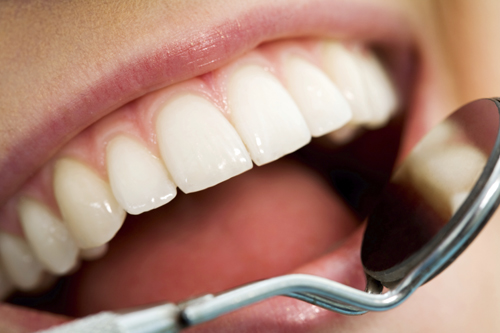Article Details
Knowledge is Power!


What Is Preventive Dental Care? A Guide to Optimal Oral Health
At E-Dental, we believe that preventive dental care is not just a routine, but a key player in warding off oral health problems before they arise. This method revolves around regular brushing, flossing, and dentist visits, acting as shields against troubles like tooth decay and gum diseases. But there’s more! Implementing this practice isn’t only about avoiding problems; it’s nurturing a relationship between you and your oral well-being, cushioning you from hefty medical bills tied to extensive treatments. A clean mouth today means a broader smile tomorrow; let’s dive into its significance.
So, today, we will walk you through the basics of how to take care of your teeth so you can reduce the damage and have a beautiful smile!
What is Preventive Dental Care?
Preventive dental care extends beyond cavities and fresh breath. It’s a comprehensive approach to maintaining your oral health and preventing numerous dental problems. This proactive form of care focuses on helping you avoid larger, often painful, and more costly issues that can arise from neglecting regular dental visits and routine care.
By promoting proper oral hygiene habits and ensuring you keep up with regular dental check-ups, preventive care minimizes the risk of various conditions, including tooth decay, gum disease, enamel wear, and even oral cancer. A little effort now can save you a lot of pain and expense later.
It’s a bit like tending to a garden. Regular watering, weeding, and nurturing will help prevent pesky weeds from taking over the beautiful blooms, just like routine dental check-ups can help catch problems before they grow into something larger.
Moreover, preventive dental care doesn’t just stop at maintaining your teeth and gums; it also significantly impacts your overall health. Research has demonstrated links between poor oral health and various other health issues like heart disease, diabetes, and pregnancy complications.
On top of that, remember that flashing a radiant smile is not just about aesthetics—it’s a reflection of good oral health too!
Incorporating Preventive Measures at Home
Preventive care isn’t just about the time spent in the dentist’s chair. It’s also about what you do every day—your brushing and flossing habits play a pivotal role in maintaining healthy teeth and gums
Perfect Your Brushing Technique
The first line of defense is brushing your teeth properly. It’s not just about moving the brush back and forth; there’s more to it. Let’s break it down into simple steps.
Frequency: Don’t just brush in the morning—make sure to squeeze in another thorough brush before bed or after meals
Duration: Spend approximately two minutes each time to ensure a comprehensive clean
Toothpaste: Use fluoride toothpaste to protect your teeth from decay and cavities
It’s not just about brushing; you need to ensure that you’re doing it right. A proper technique can make all the difference in reaching those stubborn nooks and crannies.
Equip Yourself for Successful Flossing
Now, let’s address the often-neglected but equally important act of flossing
Routine: Dedicate a few minutes each day to flossing – ideally before bedtime
Effective Technique: Ensure you’re reaching between each tooth and along the gumline by curving the floss into a ‘C’ shape
Purpose: Flossing helps remove plaque and food particles that your toothbrush might miss, preventing cavities and gum disease
In essence, these small habits – brushing twice a day for two minutes each time, using fluoride toothpaste, and making flossing part of your daily routine – can go a long way in warding off common dental issues like cavities and gum disease. Of course, they complement professional cleaning, but they provide daily preventive care that’s essential for optimal oral health.
These simple yet foundational habits are at the core of preventative dental care, forming a strong defense against common dental problems and setting the stage for an excellent oral health journey.
Role of Routine Checkups in Dental Health
Regular dental check-ups are akin to regular maintenance inspections for your car; they’re designed to catch potential problems early before they become costly headaches. This is when your dentist examines your teeth and takes a look at your X-rays to ensure everything is as it should be.
Imagine having a small cavity that you can’t even see or feel. If left undetected, this tiny issue can turn into a bigger problem, such as an infected tooth or gum disease. Regular check-ups allow the dentist to detect these issues while they’re still manageable.
Here’s what you might expect:
Step What Happens
1. Examination: The dentist checks your teeth and gums for any visible issues
2. X-rays: If needed, X-rays are taken to get a closer look at what’s happening inside your teeth and beneath the gum line
3. Professional Cleaning: The dental hygienist conducts a professional cleaning to remove plaque and tartar buildup
For instance, suppose there’s a tiny spot of decay forming on one of your molars, or maybe your gums are showing early signs of gingivitis. By identifying these issues early, your dentist can provide treatment to stop them from getting worse. This not only saves you from potential pain and discomfort but also avoids more complex and expensive treatments later down the line.
It’s crucial to remember that just because you aren’t experiencing any pain or discomfort doesn’t mean everything is okay within your mouth. Some oral health issues, like gum disease, don’t have obvious symptoms until they’re at an advanced stage. Regular examinations help catch these silent threats before they cause serious problems.
Think of routine check-ups like security checks at the airport – they’re meant to keep potential threats under control before they have a chance to cause harm.
The Benefits of Routine Dental Check-ups
According to the American Dental Association, individuals who visit the dentist regularly have a 33% lower cost of dental care compared to those with irregular or no check-ups.
- Preventing Major Dental Issues: By identifying problems early, routine dental visits can prevent minor issues from escalating into major dental problems.
- Maintaining Oral Health: Routine cleanings during check-ups help maintain good oral hygiene by removing plaque and tartar buildup.
- Saving Money: Preventive care saves money in the long run by addressing minor issues early on, avoiding the need for expensive procedures later.
Routine dental check-ups go a long way in maintaining a healthy smile and ensuring that small issues are dealt with before they become significant hurdles.
Being proactive about oral health lays the foundation for strong teeth and gums. Let’s now dig into how technological advancements have revolutionized in-office treatments for maintaining optimal tooth and gum health.
In-Office Treatments for Tooth and Gum Health
The seemingly simple act of brushing and flossing your teeth might not always be enough for maintaining oral health. Professional dental care, like the one we offer at E-Dental, gives specialized treatments that help protect your teeth and gums from decay and disease. Let’s explore a couple of these in-office treatments that are integral to achieving optimal oral health.
Professional Teeth Cleaning
When you visit our office in Seminole, Florida, our team will perform a professional cleaning to remove built-up plaque and tartar from your teeth. No matter how diligently you brush and floss at home, some stubborn plaque and tartar can still accumulate in hard-to-reach areas of your mouth. The thorough process of scaling and root planing during a professional cleaning eliminates this buildup, preventing cavities and gum disease.
Plaque is a sticky film of bacteria that continuously forms on our teeth. Over time, if it isn’t removed properly, it hardens into tartar. Professional cleanings by a skilled dental hygienist ensure that even these hardened deposits are removed, protecting the long-term health of your teeth and gums.
Application of Sealants and Fluoride
In addition to professional cleanings, sealants and fluoride treatments are valuable tools in preventive dental care. Dental sealants are applied to the chewing surfaces of the back teeth to create a protective barrier against food particles, plaque, and acids that cause decay. The application of sealants is particularly advantageous for children because their developing teeth are more susceptible to decay.
Sealants work as a shield to prevent cavities by sealing off the grooves where food and bacteria can easily get trapped. This practice significantly reduces the risk of tooth decay in molars and premolars. Similarly, fluoride treatments help strengthen tooth enamel, making it more resistant to decay. Fluoride is like armor for your teeth—helping them withstand the daily assaults that come with eating and drinking.
Both these in-office treatments target prevention by adding extra layers of defense to your teeth, ensuring they remain strong, healthy, and free from decay. Working in tandem with routine checkups, these treatments form a comprehensive strategy for maintaining excellent oral health.
These preventive procedures add an extra layer of defense against tooth decay & gum disease besides just regular brushing & flossing. Now let’s explore the importance of restorative treatments for addressing dental issues to maintain long-term oral health.
Brushing, Flossing, and Beyond: Self-Care Techniques
When it comes to taking care of your teeth and gums at home, it’s easy to quickly brush and floss without giving it much thought. But truly effective preventive dental care goes beyond just these fundamental steps. Let’s consider the step-by-step essentials for maintaining your oral health.
1. Let’s start with brushing
This is the cornerstone of your daily oral hygiene routine. It’s important to choose a toothbrush with soft bristles to avoid damaging your gums and teeth. Make sure to brush for a full two minutes, using gentle circular motions to thoroughly clean the front, back, and chewing surfaces of your teeth.
2. Flossing
Traditional floss or interdental brushes are both great options for removing plaque and food particles from between your teeth and along the gumline. Gently move the floss between each tooth and curve it around the base of each tooth to access those hard-to-reach spots.
3. Tongue cleaning
This is a frequently overlooked step in an effective oral hygiene regimen. The tongue can harbor bacteria that contribute to bad breath and cause plaque buildup. Using a tongue scraper or your toothbrush gently but firmly brush the surface of your tongue from back to front to remove any lingering bacteria.
4. Use mouthwash
Mouthwash can be beneficial as an additional step in reducing plaque and fighting against gum disease. If you’re prone to cavities, choose a mouthwash that contains fluoride, which can help protect your tooth enamel.
Furthermore, maintaining adequate levels of saliva is crucial for good oral health. Did you know that saliva helps rinse away food particles and reduces bacteria in the mouth? As part of keeping yourself hydrated, aim to drink plenty of water throughout the day which will help maintain saliva flow naturally.
By incorporating these self-care techniques into your daily routine alongside regular dental checkups, you can ensure optimal oral health and minimize the need for extensive dental treatments down the road. In understanding these effective self-care techniques, we can now explore the comprehensive impact of preventive dental care on overall well-being.
What is The Goal of Preventive Dental Care?
Maintaining good oral health is more than just having a bright smile and fresh breath. It’s about keeping your entire body healthy. Surprisingly, diseases in the mouth can impact the overall health of your body in many ways.
Recent studies have shown that poor oral health can contribute to various health issues, such as heart disease, diabetes, and even respiratory infections. When you take care of your teeth and gums, you’re also helping to take care of your whole body.
So, those regular check-ups at the dentist’s office do more than just keep your teeth looking great or catching small problems before they get bigger; they also contribute to your health in general.
Preventive dental care is like warming up before a big race. Just like warming up prepares the body for intense physical activity, preventive dental care prepares your mouth for any potential problems. It helps stop little problems before they have a chance to grow into big ones. And not only does it save you from painful toothaches or fixing cavities later; it saves money too.
For instance, if you go to the dentist for regular cleanings, they can catch things like a cavity when it’s still small. If you let it grow, fixing it may lead to expensive procedures like root canals or crowns. Research suggests that regular preventive dental care can be cost-effective in so many ways! It saves money by preventing the need for more expensive procedures down the road.
Frequently Asked Question About Preventive Dentistry: What You May Want to Know
Are there any specific guidelines or recommendations for maintaining good oral hygiene at home?
Yes, there are specific guidelines for maintaining good oral hygiene at home. The American Dental Association recommends brushing your teeth twice a day with fluoride toothpaste, using a soft-bristled toothbrush. Additionally, flossing daily and using an antimicrobial mouth rinse can help remove plaque and prevent gum disease. A study published in the National Library of Medicine found that regular brushing and flossing reduced the risk of developing periodontal disease by 70%.
How often should I visit the dentist for preventive care?
It is recommended to visit the dentist for preventive care at least twice a year. Regular dental check-ups can help detect early signs of dental issues like cavities, gum disease, and oral cancer, which are easier and less expensive to treat in the early stages. According to statistics from the American Dental Association, adults who visit their dentist regularly have lower rates of tooth loss and overall better oral health compared to those who neglect preventive care. So, don’t skip those appointments!
What are some common preventive dental procedures?
Some common preventive dental procedures include regular cleanings and check-ups, fluoride treatments, dental sealants, and oral cancer screenings. Regular cleanings help remove plaque and tartar buildup, reducing the risk of developing gum disease or tooth decay. Fluoride treatments help strengthen teeth and prevent cavities. Dental sealants act as a protective barrier against decay, particularly in the back teeth where chewing occurs. Oral cancer screenings help detect early signs of oral cancer for prompt intervention. According to the American Dental Association (ADA), regular preventive care can reduce the risk of developing oral health issues and save individuals money in the long run by avoiding costly restorative dental procedures.
Schedule a Preventive Dental Appointment Today!
We’ve explored the ins and outs of preventive dental care and how it serves as the foundation for optimal oral health. At E Dental, your bright smile is our mission. Located in both Seminole and Apollo Beach, Florida, our cosmetic and family dentistry is equipped to provide you with top-tier preventive services that can fend off dental issues before they arise.
Remember, regular check-ups, proper hygiene practices, and a proactive approach to dental health can save you time, money, and discomfort in the long run. Don’t leave your oral health to chance.
Take the first step towards a healthier, more radiant smile. Schedule your next preventive dental appointment today with E Dental, and be confident that you’re taking charge of your oral wellness. Your smile is a precious asset—guard it with great care.
Complete the form below and one of our staff will contact you to confirm




